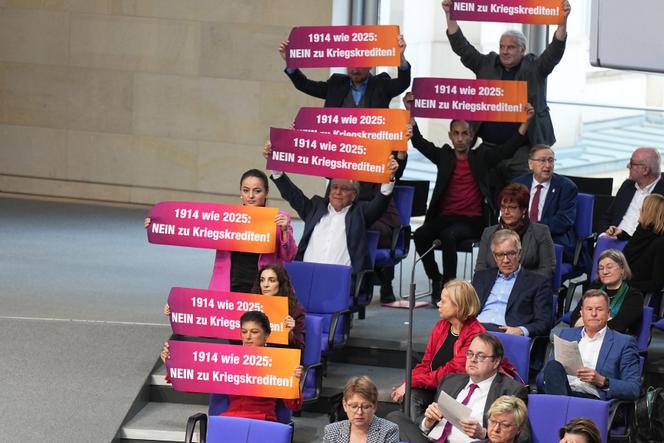
The word "peace" was barely uttered. The heated debates in the Bundestag on Tuesday, March 18, covered the constitutional reform designed to release funds to rearm Germany focused on the risks of debt, the ideological about-turn of the conservatives led by Friedrich Merz, broken campaign promises, but they hardly touched on the heart of the matter: the hundreds of billions of euros released to finance the German army in the long term. As if the need to massively rearm the country were now a matter of consensus. Or that opposing it has become impossible, even for those elected representatives who, like many of their fellow citizens, grew up in the 1980s with the famous slogan Frieden schaffen ohne Waffen ("Make peace without arms"), the rallying cry of an anti-militarist Germany with Protestant roots.
Is Germany done with pacifism? The ideological turning point dates back to the Zeitenwende ("change of era") theorized by Chancellor Olaf Scholz three days after the invasion of Ukraine in February 2022, and invoked to prepare the country for the need to invest in its defense. But even then, there were still voices calling to avoid a "global arms spiral" and to "aspire to world peace," as some 30 intellectuals urged in an open letter to Scholz, in April 2022. Donald Trump's victory and his obvious disinterest in Europe have accelerated the realization that the country is not yet quite ready to assume its military responsibilities without its historic protector.
You have 78.85% of this article left to read. The rest is for subscribers only.